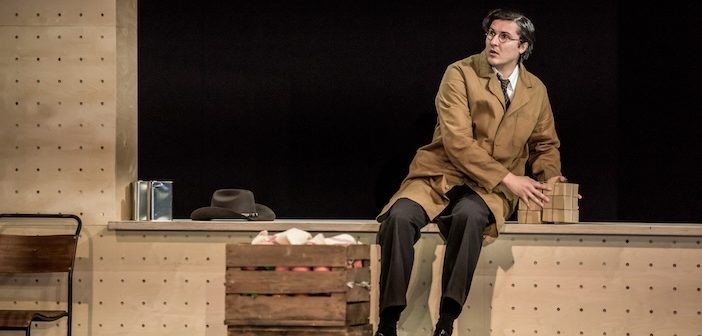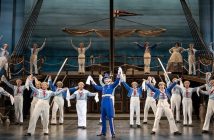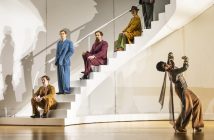At the end of the second scene of Benjamin Britten’s Albert Herring, Albert, stuck working in his mum’s village shop, wonders about his future. ‘Oh maybe soon,’ he sings, ‘I’ll have the chance to get away. And Golly, it’s about time…it’s about time…it’s about time…it’s about time.’
And it is. Time, in all its forms, is in many ways what Albert Herring – certainly this new, and first, English National Opera production of it – is about. Britten’s familiar themes are here, of course; the tension of being a misfit caught between two worlds; choosing conformity or freedom; the dual hypocrisy of public versus private morality. But it’s time, in its many guises, that symbolises that struggle here.
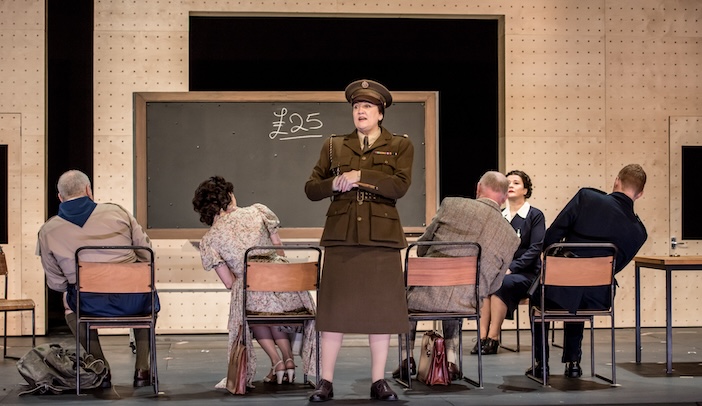
Loxford society, with Lady Billows leading the line, is stuck in the past, repressed and obsessed with the passage of time, while young lovers Sid and Nancy, along with the village children, represent freedom and the future. Their respective music tells us as much. Albert, on the other hand, like most of us, is stuck in the present, feeling the pull of both past and future.
The action takes place in the years just after the Second World War, a time when British society was coming to terms with its own sense of freedom, particularly what it cost to achieve that freedom, so the choice to cast Lady Billows as an army officer works beautifully. The establishment isn’t just stuffy and stuck in the past – it knows the cost of freedom all too well – but, unfortunately, having fought for freedom, it then thinks that gives it the right to dictate what the next generation do with it.
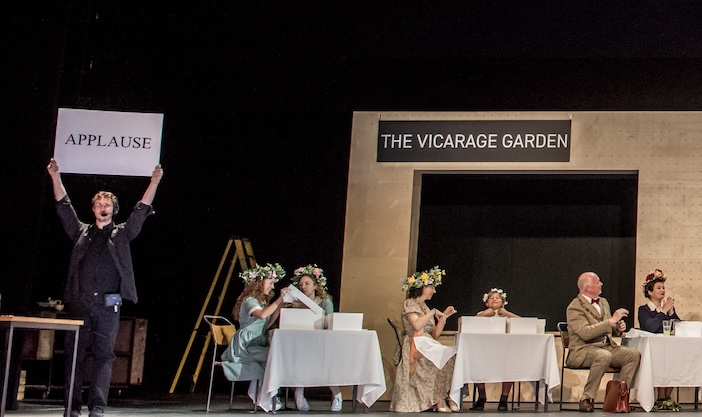
The production is billed as ‘semi-staged, but I’d argue it’s fully staged, just minimally. There is no curtain. As the audience take their seats, stage hands bustle about, while a character listed as ‘the stage manager’ sits at a desk, wearing a headset and in possession of a huge clock. It’s this stage manager who walks to the front and tells conductor Daniel Cohen it’s time to get things underway. The action then unfolds as though it’s part of a BBC radio play, with the stage manager providing sound effects and holding up the clock at key points.
The village elders are almost caricatures, from the pompous sergeant major Billows to the village bobby permanently rocking on his toes and thrusting his lips out like he’s trying to balance an invisible caterpillar on his top lip. This gives the whole affair a Dad’s Army vibe and I wonder whether that’s the point of this simple, eloquent staging by Antony McDonald – this is a period piece and everything we see is really just beholden to the studio clock. None of us, in the end, are masters of our own time, not even the conductor.

The plot is, in many ways, a parallel of Britten’s Peter Grimes. There’s a misfit, a seemingly morally upright community (which turns out to be anything but), a crisis point, a manhunt and a ‘mad scene’. But this feels different. There’s a much more assured sense of self and of questioning what ‘fitting in’ really means.
In this case it’s his awareness of the passage of time that eventually sets Albert free, rather than consigning himself to a watery death, but there are echoes of Peter Grimes’ tides and turning points:
‘The tide will turn, the sun will set
While I stand here and hesitate.
The clock begins its rusty whirr,
Catches its breath to strike the hour
And offers me a final choice
That must be answered No or Yes.’
However, unlike Grimes or Britten’s Billy Budd, which both end with the misfit being destroyed, Albert Herring ends with the title character having lived a little, learned a little, drunk a bit too much and gained a newfound sense of his own freedom.
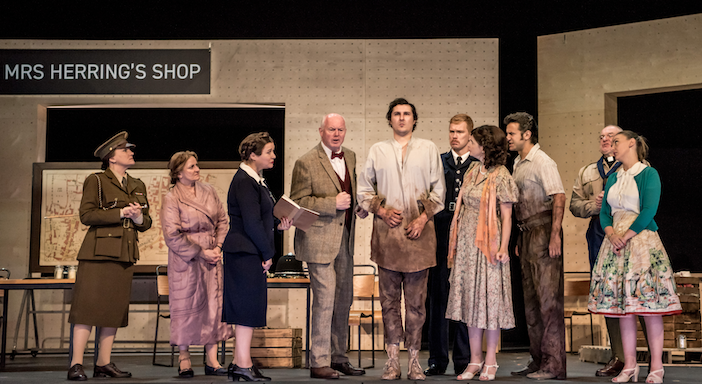
Albert Herring may feel a bit lightweight compared to a work like Peter Grimes, especially when you consider there are just fourteen players in the orchestra, thirteen singing roles and no chorus, but it still manages to deal with some big themes. When it comes down to it, this production is witty, thoughtful and, at the end of the day, entertaining. I left with a smile on my face and some gradually unspooling thoughts about time and what it means to be an individual in a divided society buzzing round my head. You can’t really ask more of a night in the theatre than that.
Albert Herring is on at the Coliseum until 16th October, and transfers to the Lowry, Salford, on 21st and 22nd October. For more information, please visit www.eno.org.

